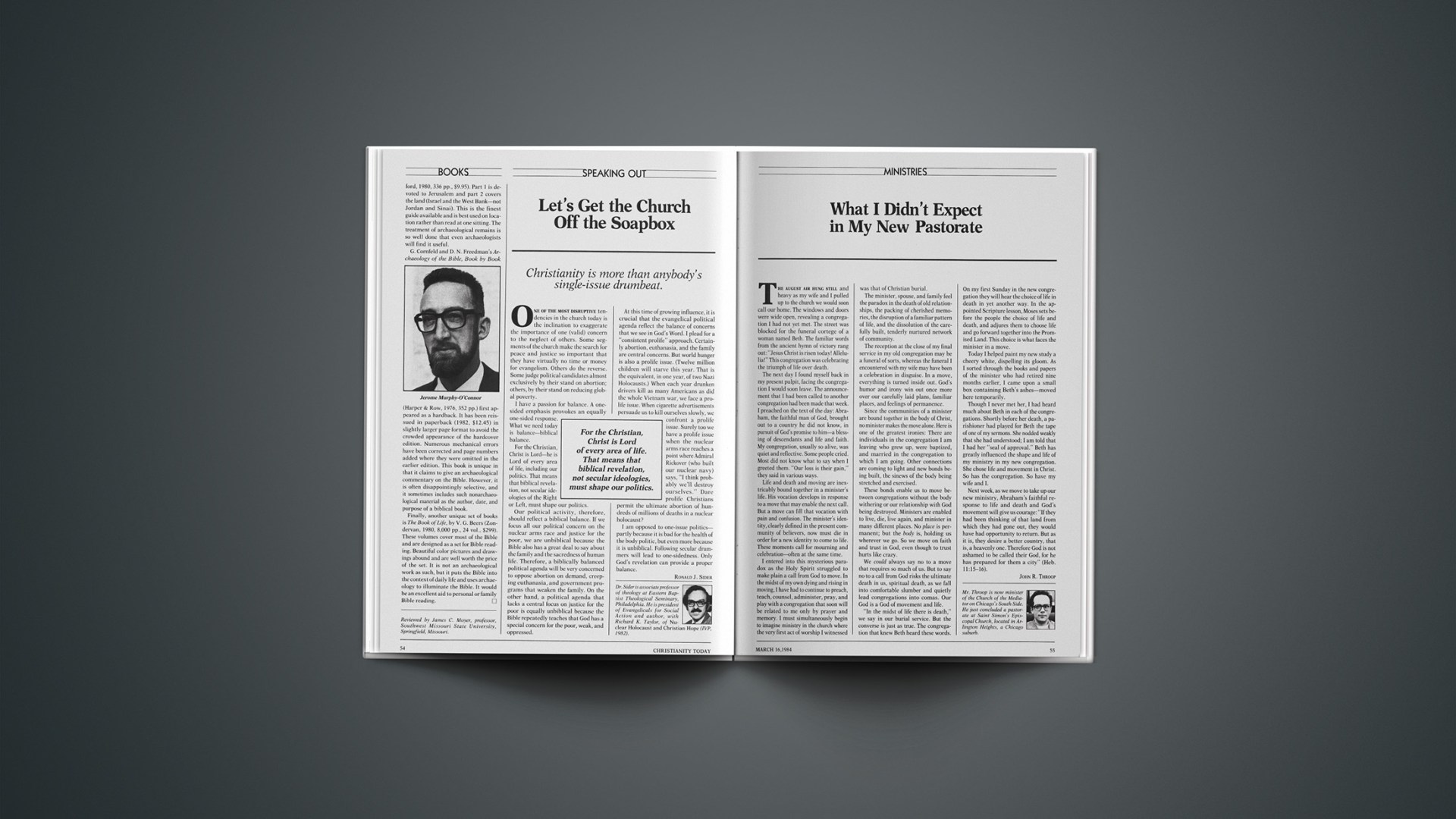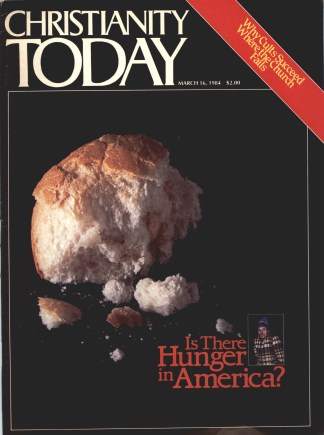The august air hung still and heavy as my wife and I pulled up to the church we would soon call our home. The windows and doors were wide open, revealing a congregation I had not yet met. The street was blocked for the funeral cortege of a woman named Beth. The familiar words from the ancient hymn of victory rang out: “Jesus Christ is risen today! Allelulia!” This congregation was celebrating the triumph of life over death.
The next day I found myself back in my present pulpit, facing the congregation I would soon leave. The announcement that I had been called to another congregation had been made that week. I preached on the text of the day: Abraham, the faithful man of God, brought out to a country he did not know, in pursuit of God’s promise to him—a blessing of descendants and life and faith. My congregation, usually so alive, was quiet and reflective. Some people cried. Most did not know what to say when I greeted them. “Our loss is their gain,” they said in various ways.
Life and death and moving are inextricably bound together in a minister’s life. His vocation develops in response to a move that may enable the next call. But a move can fill that vocation with pain and confusion. The minister’s identity, clearly defined in the present community of believers, now must die in order for a new identity to come to life. These moments call for mourning and celebration—often at the same time.
I entered into this mysterious paradox as the Holy Spirit struggled to make plain a call from God to move. In the midst of my own dying and rising in moving, I have had to continue to preach, teach, counsel, administer, pray, and play with a congregation that soon will be related to me only by prayer and memory. I must simultaneously begin to imagine ministry in the church where the very first act of worship I witnessed was that of Christian burial.
The minister, spouse, and family feel the paradox in the death of old relationships, the packing of cherished memories, the disruption of a familiar pattern of life, and the dissolution of the carefully built, tenderly nurtured network of community.
The reception at the close of my final service in my old congregation may be a funeral of sorts, whereas the funeral I encountered with my wife may have been a celebration in disguise. In a move, everything is turned inside out. God’s humor and irony win out once more over our carefully laid plans, familiar places, and feelings of permanence.
Since the communities of a minister are bound together in the body of Christ, no minister makes the move alone. Here is one of the greatest ironies: There are individuals in the congregation I am leaving who grew up, were baptized, and married in the congregation to which I am going. Other connections are coming to light and new bonds being built, the sinews of the body being stretched and exercised.
These bonds enable us to move between congregations without the body withering or our relationship with God being destroyed. Ministers are enabled to live, die, live again, and minister in many different places. No place is permanent; but the body is, holding us wherever we go. So we move on faith and trust in God, even though to trust hurts like crazy.
We could always say no to a move that requires so much of us. But to say no to a call from God risks the ultimate death in us, spiritual death, as we fall into comfortable slumber and quietly lead congregations into comas. Our God is a God of movement and life.
“In the midst of life there is death,” we say in our burial service. But the converse is just as true. The congregation that knew Beth heard these words. On my first Sunday in the new congregation they will hear the choice of life in death in yet another way. In the appointed Scripture lesson, Moses sets before the people the choice of life and death, and adjures them to choose life and go forward together into the Promised Land. This choice is what faces the minister in a move.
Today I helped paint my new study a cheery white, dispelling its gloom. As I sorted through the books and papers of the minister who had retired nine months earlier, I came upon a small box containing Beth’s ashes—moved here temporarily.
Though I never met her, I had heard much about Beth in each of the congregations. Shortly before her death, a parishioner had played for Beth the tape of one of my sermons. She nodded weakly that she had understood; I am told that I had her “seal of approval.” Beth has greatly influenced the shape and life of my ministry in my new congregation. She chose life and movement in Christ. So has the congregation. So have my wife and I.
Next week, as we move to take up our new ministry, Abraham’s faithful response to life and death and God’s movement will give us courage: “If they had been thinking of that land from which they had gone out, they would have had opportunity to return. But as it is, they desire a better country, that is, a heavenly one. Therefore God is not ashamed to be called their God, for he has prepared for them a city” (Heb. 11:15–16).
Mr. Throop is now minister of the Church of the Mediator on Chicago’s South Side. He just concluded a pastorate at Saint Simon’s Episcopal Church, located in Arlington Heights, a Chicago suburb.










